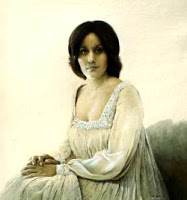Van Cliburn, the American pianist legendary for winning the Tchaikovsky Competition in the USSR in 1962 despite the Cold War , has died at the age of 78. Here's a colourful obituary from the Telegraph. The story goes that Krushchev said "Is he the best? Then give him the prize..."
Here are some tributes.
First, thanks to Mark Ainley of The Piano Files for sharing this link of unusual footage from France. After it, the last movement of the Tchaikovsky Piano Concerto No.1 from Moscow in 1962, conducted by Kirill Kondrashin. Van Cliburn may have played his last movement now, but he will never be forgotten.
AND - UPDATE - in our final selection, Van Cliburn appears as a Mystery Challenger on What's My Line?, stumping the team with a brilliant fake Hungarian accent...
Here are some tributes.
First, thanks to Mark Ainley of The Piano Files for sharing this link of unusual footage from France. After it, the last movement of the Tchaikovsky Piano Concerto No.1 from Moscow in 1962, conducted by Kirill Kondrashin. Van Cliburn may have played his last movement now, but he will never be forgotten.
AND - UPDATE - in our final selection, Van Cliburn appears as a Mystery Challenger on What's My Line?, stumping the team with a brilliant fake Hungarian accent...
















